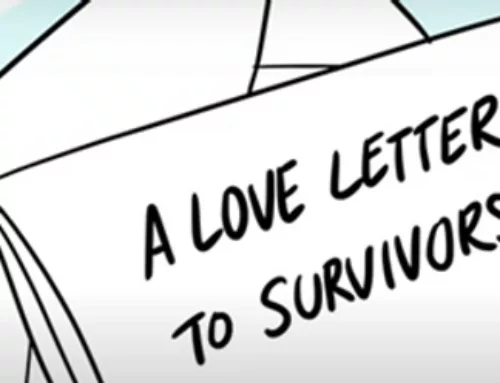Since January is Stalking Awareness Month, we’re talking about the crime of stalking. Yes, stalking is considered criminal harassment in Canada. It’s not ‘harmless’ – in fact, stalking is often a precursor to more violent behaviour (many domestic violence homicides have a stalking component) and they can cause significant mental distress to the victim. Ignoring it doesn’t make it go away.

What is stalking?
Stalking is when someone repeatedly harasses or threatens someone else, causing fear or safety concerns. Most victims are commonly stalked by someone they know, such as an intimate partner or acquaintance. Stalking includes:
- Making unwanted phone calls or sending unwanted emails, texts, voicemails, or using social media to send unwanted correspondence;
- Watching, following, or tracking a victim either physically or by technological means;
- Approaching a victim or showing up unwanted, such as at their home, workplace, or school;
- Sneaking into a victim’s home or car, leaving strange or potentially threatening items for the victim to find, doing things to let them know their stalker had been there;

It is common to experience some or all of the following if you think you’re being stalked:
- Fearing what the stalker will do.
- Feeling vulnerable, unsafe, anxious, and not know who to trust.
- Feeling irritable, impatient, or on edge, depressed, hopeless, overwhelmed, tearful, or angry.
- Having trouble concentrating, sleeping, remembering things, having eating problems, such as appetite loss, forgetting to eat, or overeating.
- Experience flashbacks, disturbing thoughts, feelings, or memories.
- Feeling confused, frustrated, or isolated because other people don’t understand why you are afraid.
So what can you do if you think you’re being stalked?
Here are some tips from Kris Mohandie, a stalking expert and police psychologist:
- Do not engage your stalker. Instead, avoid all contact.
- Report it to authorities who may be able to do something about it. You may also be eligible to seek a court order to protect you.
- Get your internet/phone company providers involved to help you. Many companies have client services to address what they can.
- Inform people in your life of the potential threat. This may include loved ones, and coworkers/employers. There is no embarrassment or shame in trying to keep yourself safe.
- Stay alert and proactive. Enhance security measures such as locks, alarms and security cameras whenever possible.
- Document all incidents including all messages, voicemails, letters, and cards. Your impulse may be to destroy things that scare you or are hateful but it may be important evidence with which to make a police report.
- If you can, photograph and document things that are damaged and get that information to the police so that they can begin to intervene.
Not sure what you can do? Contact us to book a phone consult to discuss your options. If you feel you are in immediate danger, please call 911.

